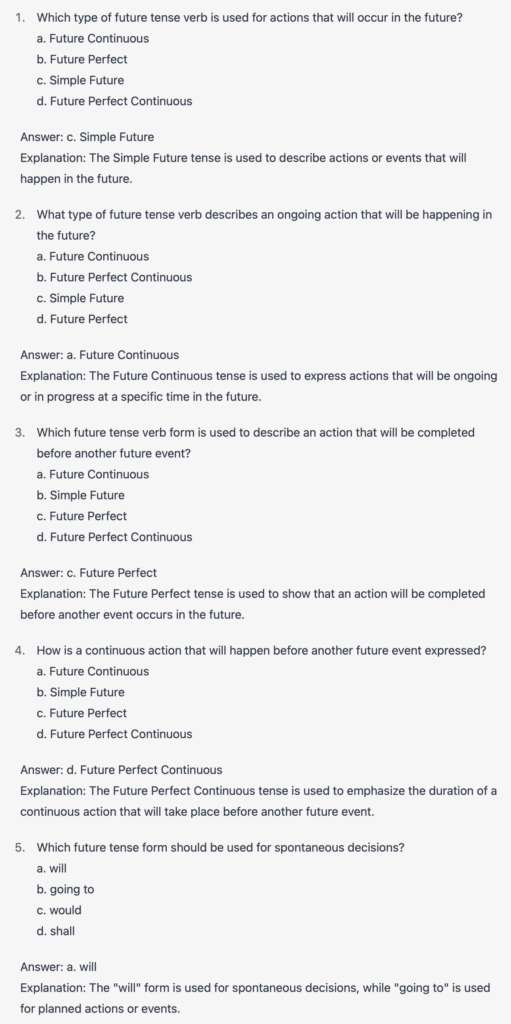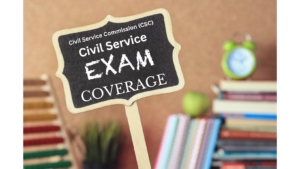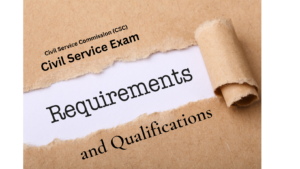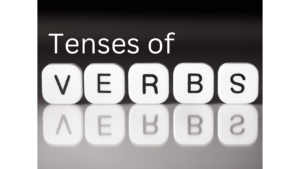Exploring the Future Tense of Verbs: A Comprehensive Guide with Examples
Future tense verbs are a vital aspect of English grammar, allowing us to express actions or events that will occur in the future. This article delves into the different types of future tense verbs, provides examples, and offers best practices for their usage.
Types of Future Tense Verbs
There are four main types of future tense verbs in English:
- Simple Future: Used to express actions that will happen in the future.
- Example: I will walk to the store.
- Future Continuous: Indicates an ongoing action that will be happening in the future.
- Example: I will be walking to the store when you call me.
- Future Perfect: Describes an action that will be completed before another future event.
- Example: I will have walked to the store before you arrive.
- Future Perfect Continuous: Expresses a continuous action that will be happening before another future event.
- Example: I will have been walking to the store for 10 minutes when you call me.
Dos and Don’ts of Using Future Tense Verbs
Dos:
- Do use “will” or “going to” for simple future tense, depending on context and certainty.
- Example: I will go to the store. / I am going to go to the store.
- Do use future continuous to describe ongoing actions in the future.
- Example: She will be studying when you arrive.
- Do use future perfect to express an action that will be completed before another future event.
- Example: They will have finished the project by next week.
- Do use future perfect continuous to emphasize the duration of an action before another future event.
- Example: I will have been working for eight hours when you come home.
Don’ts:
- Don’t use “will” after “if” or “when” in conditional sentences.
- Incorrect: If I will see him, I will say hello.
- Correct: If I see him, I will say hello.
- Don’t use “going to” for spontaneous decisions.
- Incorrect: I am going to have an ice cream right now.
- Correct: I will have an ice cream right now.
- Don’t use future continuous for actions that aren’t ongoing.
- Incorrect: I will be visit my friend tomorrow.
- Correct: I will visit my friend tomorrow.
- Don’t use future perfect continuous if the duration isn’t relevant.
- Incorrect: I will have been buy a new car next month.
- Correct: I will buy a new car next month.
Conclusion: Enhance Your Mastery of Future Tense Verbs
Understanding the different types of future tense verbs and their proper usage is key to effective communication. By learning the various forms and adhering to the dos and don’ts provided in this article, you’ll be well-prepared to express future actions and events clearly and accurately. For more language learning tips and resources, don’t forget to follow and like us on Facebook. Here are some questions.





